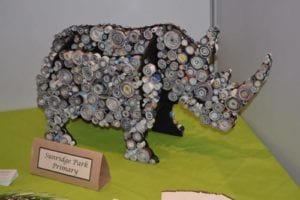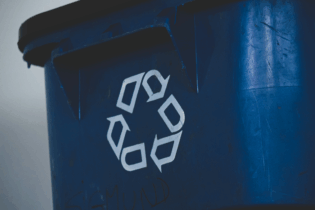This year’s biennial Eastern Cape ‘Green Revolution’ Conference saw the 72 delegates join in on significant discussions about environmental consciousness and the lessons the waste management industry can learn from countries like the UK, while also being introduced to a number of innovative projects – like a unique solar car showcased by Nelson Mandela Metropolitan University (NMMU).
South Africa’s waste management challenges include a growing population and economy, increasingly complex waste streams and a limited understanding of waste flows. “The policy and regulatory environment does not promote waste hierarchy.” This is according to UK-based waste specialist, Sarah Edwards, from RWS Environmental Consultancy. Edwards was opening the debate around waste management lessons that could be learnt from the UK’s experience, as one of the industry experts lined up to share knowledge on how to be more sustainable at the much anticipated IWMSA Eastern Cape Conference, titled the ‘Green Revolution’, which took place on 10 September 2013 at the Boardwalk Conference Centre in Port Elizabeth. Edwards noted that from her 15 years of experience in waste management, the cornerstones of effective waste management include data collection and analysis, strategy development, collection systems planning and delivery, and infrastructure planning and delivery. The absence of recycling infrastructure and the informal nature thereof in the local waste management sector was a challengeshe also noted. According to Edwards, there is much that South Africa can learn from the UK, especially in respect to formalising recycling streams and infrastructure. “Look for quick wins in recycling collections,” she advised. More than a moral imperative Other speakers included John Hunt and Richard Harper from South Africa-based Mpact Recycling, who discussed how to convert the enthusiasm for the “green revolution” into sustainable recyclate collection projects. “We have public awareness and enabling legislation. How do we convert this into successful recycling projects?” asked Hunt. According to Hunt and Harper, it is Mpact Recycling’s view that customers need to be provided with simple and easy to use mechanisms to enable them to dispose of their recyclable material with the confidence that it will be recycled.However, the moral imperative to recycle, while necessary, is not sufficient alone to sustain recycling projects. “Projects must have a solid economic basis, with the benefits being not only environmental, but also social and economic,” said Hunt, adding that collected material has a value at the door of the factory that will recycle it.According to Hunt, sustainable projects require not only adequate capitalisation at the outset, but must also generate sufficient income to replace capital equipment.
Hunt concluded that local markets are essential for sustainable projects and that government involvement and support is vital. “We need creativity and innovation and the courage to try out new ideas.” Innovation on display Dr Chris Mulder introduced the concept and design of Crossways Farm Village, an innovative new “rural town”, which has been conceived and planned to inject a sustainable economic boost into the rural Eastern Cape. The project, which was approved and officially launched in 2010, is a rural development that adheres to strict building guidelines and green measures in relation to wastewater management, waste management and recycling – all of which will be enforced as non-negotiable, according to Mulder. “The development of a new town under the Kouga Municipality will provide its own wastewater treatment plant, refuse removal system that requires all refuse to be separated at source, as well as a waste management and recycling facility that is to be operated by small emerging private entrepreneurs from the region,” explained Mulder, adding that he hoped to rollout a number of similar projects in the near future. Other speakers included Prof Maarten de Wit, a professor at NMMU, who focused on ‘How to get Earth back on track’ through a new discipline called ‘Earth stewardship science’. Peter Neilson also discussed renewable energy challenges and opportunities for municipalities, strongly emphasising that great opportunities abounded in the renewable energy field in the Eastern Cape, while Lisa Parkes from PETCO offered an introduction to PETCO and PET recycling in South Africa, emphasising the multiple means of assistance and support the company offers communities. “We are delighted by the positive turnout for this conference and for all the valuable insight we received about focus areas in the waste industry, green technology, South Africa’s recycling prospects and newly formulated disciplines. On behalf of the IWMSA, we would like to thank all the speakers for their time and knowledge,” concluded IWMSA president, Dr Suzan Oelofse.






